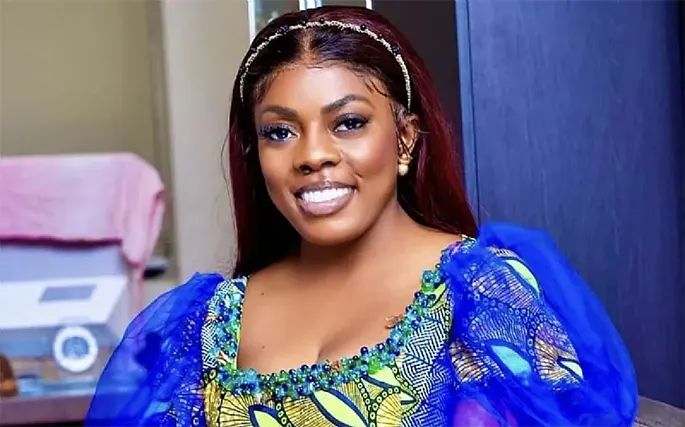Nana Aba Anamoah, a prominent Ghanaian broadcaster, has issued a clarion call to Ghana’s film industry, urging a shift in focus towards indigenous storytelling as a pathway to global recognition and competition with established film powerhouses like Hollywood and Bollywood. She argues that the Ghanaian film landscape is currently saturated with romantic narratives, neglecting the rich tapestry of cultural stories that could set Ghanaian cinema apart on the world stage. Anamoah emphasizes the uniqueness and inherent appeal of these untold stories, citing the historical narratives of the Asante, Ga, Fante, and Ewe people as compelling narratives waiting to be brought to life on screen. She questions how Ghanaian cinema can hope to compete internationally when it replicates the same tropes and themes already prevalent in global film markets, suggesting that the key to distinction lies in embracing the nation’s own unique cultural heritage.
Anamoah’s critique centers on the untapped potential of historical and cultural narratives, questioning why stories of iconic figures like Yaa Asantewaa, a powerful Asante queen who led a war against British colonialism, and Tetteh Quarshie, who introduced cocoa farming to Ghana, remain untold on film. She contends that these stories, rich in historical significance and cultural resonance, hold the power to captivate audiences worldwide. The broadcaster contrasts the universality of romantic themes with the specific cultural richness embedded within these local narratives. She argues that while romance is a common human experience, the stories of Yaa Asantewaa or Tetteh Quarshie offer a unique glimpse into Ghanaian history and culture, providing a distinct cinematic experience unavailable elsewhere. This, she posits, is the key to breaking through the clutter and establishing a distinct Ghanaian cinematic identity.
Addressing the common concern of funding limitations within the Ghanaian film industry, Anamoah presents a compelling counter-argument. She asserts that the quality and compelling nature of a story are the primary drivers of interest and investment. A captivating narrative, particularly one rooted in vibrant cultural history, can attract international attention and funding, even from major streaming platforms like Netflix. She uses Netflix as an example, suggesting that the platform is actively seeking unique, engaging content and would be drawn to the powerful narratives inherent in stories like Yaa Asantewaa’s. She envisions a scenario where international platforms invest in and produce these stories, labeling them as “Netflix Originals” or similar designations, thereby elevating Ghanaian narratives to a global stage.
Further strengthening her argument, Anamoah points to the recent funeral of the Asantehemaa, the Queen Mother of the Ashanti Kingdom, as a powerful example of the global appeal of Ghanaian culture. The event drew thousands of mourners from across Ghana and around the world, showcasing the rich customs, traditions, and artistry of the Ashanti people. The grandeur and cultural significance of the funeral demonstrated the inherent appeal of Ghanaian heritage, suggesting that such narratives, when translated into film, could hold similar captivation for international audiences. The Asantehemaa’s funeral served as a living testament to the richness and global resonance of Ghanaian culture, a testament Anamoah believes the film industry should heed.
Anamoah’s critique is not merely a call for change, but also a warning. She cautions that the continued neglect of these powerful local narratives could lead to their appropriation by international filmmakers. She expresses concern that if Ghanaian filmmakers fail to capitalize on these stories, foreign productions will eventually seize the opportunity, potentially misrepresenting or misinterpreting these important cultural narratives. This, she argues, would be a missed opportunity for Ghanaian filmmakers to control their own narratives and present their history and culture to the world on their own terms.
The broadcaster’s comments resonate with a broader conversation about cultural ownership and representation in film. She advocates for a proactive approach, urging Ghanaian filmmakers to take control of their own stories and present them to the world with authenticity and nuance. Anamoah’s call to action is a plea for the Ghanaian film industry to embrace its unique heritage, recognize the global potential of its untold stories, and create a cinematic landscape that both reflects and celebrates the richness of Ghanaian culture. This, she believes, is the path to not only competing with international cinema but also making a unique and valuable contribution to the global cinematic landscape.














